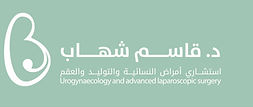
What is ICSI or intrauterine injection?
It is the process of injecting semen into the uterus, during ovulation. It is generally called ICSI, although this term is imprecise, as ICSI is scientifically one of the steps in the laboratory to inject the sperm into the egg.
Sperm screening to prefer male pregnancy?
The testers attempt to isolate the male sperm. This method can increase the rate of pregnancy in males by 20%
Personally, I do not recommend this method if the goal is to become pregnant in order to determine the sex, unless the woman is fully aware that it is possible, if she becomes pregnant, that the fetus is of a different sex than what she expected. Whereas, the percentage of being a male is very close to the rate that anyone has 50%
How is the ICSI process performed?
Steps of the ICSI process:
We start treatment at the beginning of the menstrual cycle, usually on the second to the fifth day of the cycle. Of course, the type of treatment to stimulate the ovaries is determined after the examination. Sometimes it is a normal cycle, and we just monitor the eggs to know the timing of the injection. Other times we resort to pills or needles.
1.: Clomid, to be given as directed by your doctor.
2. Needles or any product recommended by Dr. Qassem Shihab
Also, there are times when we use the "detonation" needle. After that, at a specified time, we ask the husband for a semen sample. After stimulation in the laboratory, we inject it into the womb.
Is ICSI painful and tiring?
It is not painful and does not require anesthesia in most cases. In general, I advise patients to take a specific analgesic an hour before the injection. Talk to Dr. Qassem Shihab if you are interested in general anesthesia.
What should I do after the injection?
Usually you do not need more than an hour to rest after the injection, and then some light intoxicants if necessary. Patients are advised to have a home pregnancy test two weeks after the procedure.
How much does an ICSI cost?
Not very expensive in general. The cost goes up a bit if we do ovarian stimulation with needles.
What is the success rate of ICSI?
In general, 15% for each session, and 45% for a comprehensive treatment. I do not recommend continuing with ICSI for more than three cycles, as the success rates do not improve significantly after this number.
So, it must be known that ICSI and tube babies are two different things, even if the goal is pregnancy, God willing.
If this process does not succeed, we resort to other methods of pregnancy, including IVF .
Dr. Qassem Shihab , consultant advanced laparoscopic surgery, gynecology and obstetrics. Subspecialty specialization in the treatment of urinary incontinence and gynecological edema
Abdali Hospital , Boulevard, 24th floor
Oman Jourdan
For reservations and inquiries
Read also:
